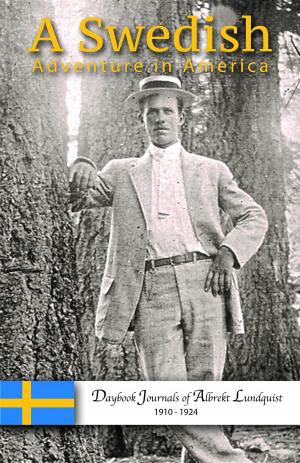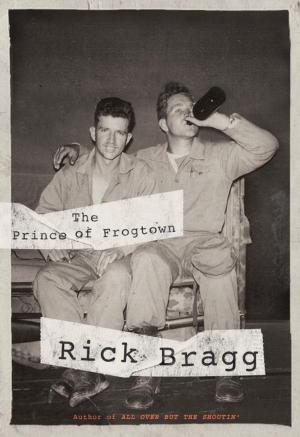House of Doors
Surviving Love in the Rural South
Nonfiction, Family & Relationships, Family Relationships, Abuse, Biography & Memoir| Author: | E Carolyn Tucker PHD | ISBN: | 9780996647427 |
| Publisher: | Southern Rural Matters | Publication: | October 26, 2016 |
| Imprint: | Southern Rural Matters | Language: | English |
| Author: | E Carolyn Tucker PHD |
| ISBN: | 9780996647427 |
| Publisher: | Southern Rural Matters |
| Publication: | October 26, 2016 |
| Imprint: | Southern Rural Matters |
| Language: | English |
House of Doors is the story of a life reassembled and about surviving love in the Rural South
"House of Doors was written for the Katie’s in every culture. The stories offer confirmation for those who are doubted; comfort for those whose stories go unheard; consolation for those seeking guidance; community for those who are alone, neglected, or abandoned; candor for those who are desperate for truth; catalyst for those needing a gentle push to find help; compassion for those feeling guilt or shame in their loss of innocence; condemnation for those who perpetuate the “mis-love” by keeping the secrets, by looking the other way, or by refusing to believe or get involved; and celebration in the survival and triumph that can be achieved through faith, support, and direction. One of the best books I've ever read.... Dr. Tucker touches every element of human emotion. I actually found myself wanting to hold Kate's hand during her soulful journey through the doors of escapism.”
M.T. Arnold – bestselling author, film producer, and president of FC Productions
House of Doors exposes the most-guarded secrets and stories of the rural south through the voice of Katie, a young girl trapped in a web of secret rituals and rites of passage*.* These stories play out in a nearly always patriarchal, “Good-Old-Boy” culture and follow Katie as she learns to cope and survive “love” that is expressed as control, manipulation, and abuse.
From her child’s voice, the reader understands more than Katie knows how to say. As an adolescent, Katelynn learns to cope with brutal truths; as she matures into adulthood, learning to cope with the dichotomy of revelations about “love” that assault her in flashbacks and night terrors.
Katie’s stories are viewed through changing lenses: female, sibling, victim, and Southern Rural; and the distorted lens of dissociative personalities--the Comforter, the Chastiser, and the Counselor.
The stories (gathered from interviews of survivors and expert informants, through doctoral research and reflection, and during therapy sessions and group discussions) have been creatively altered to protect identities. So, while the characters are fictionalized, the stories are based on the real experiences of countless females in the Rural South.
Perhaps you will understand what Katie is trying to tell. Perhaps you will understand that in every story or joke about a “kissing cousin” and “inbred retard” there is probably a victim—a victim without a voice.
House of Doors is the story of a life reassembled and about surviving love in the Rural South
"House of Doors was written for the Katie’s in every culture. The stories offer confirmation for those who are doubted; comfort for those whose stories go unheard; consolation for those seeking guidance; community for those who are alone, neglected, or abandoned; candor for those who are desperate for truth; catalyst for those needing a gentle push to find help; compassion for those feeling guilt or shame in their loss of innocence; condemnation for those who perpetuate the “mis-love” by keeping the secrets, by looking the other way, or by refusing to believe or get involved; and celebration in the survival and triumph that can be achieved through faith, support, and direction. One of the best books I've ever read.... Dr. Tucker touches every element of human emotion. I actually found myself wanting to hold Kate's hand during her soulful journey through the doors of escapism.”
M.T. Arnold – bestselling author, film producer, and president of FC Productions
House of Doors exposes the most-guarded secrets and stories of the rural south through the voice of Katie, a young girl trapped in a web of secret rituals and rites of passage*.* These stories play out in a nearly always patriarchal, “Good-Old-Boy” culture and follow Katie as she learns to cope and survive “love” that is expressed as control, manipulation, and abuse.
From her child’s voice, the reader understands more than Katie knows how to say. As an adolescent, Katelynn learns to cope with brutal truths; as she matures into adulthood, learning to cope with the dichotomy of revelations about “love” that assault her in flashbacks and night terrors.
Katie’s stories are viewed through changing lenses: female, sibling, victim, and Southern Rural; and the distorted lens of dissociative personalities--the Comforter, the Chastiser, and the Counselor.
The stories (gathered from interviews of survivors and expert informants, through doctoral research and reflection, and during therapy sessions and group discussions) have been creatively altered to protect identities. So, while the characters are fictionalized, the stories are based on the real experiences of countless females in the Rural South.
Perhaps you will understand what Katie is trying to tell. Perhaps you will understand that in every story or joke about a “kissing cousin” and “inbred retard” there is probably a victim—a victim without a voice.















